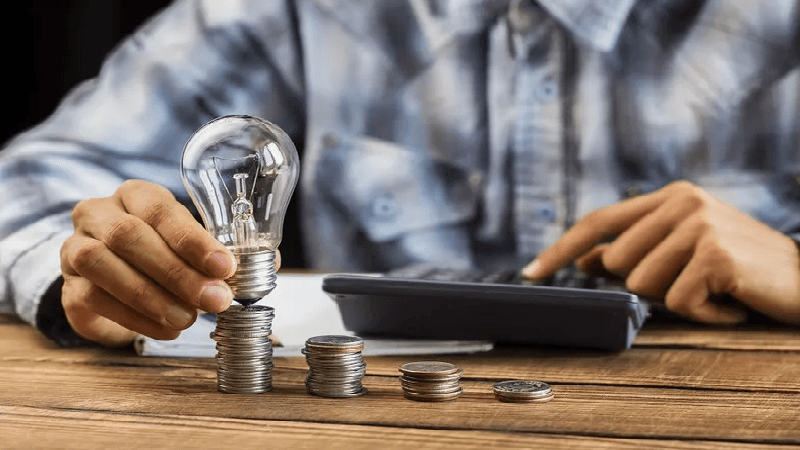
In this article we will present the importance of budgeting in people's financial lives and the main advantages of its constant use. In addition, we will show you how to make an effective budget and some recommendations to keep it updated.
What is a budget?
A budget is a financial tool that allows you to plan your income and expenses in an organized and efficient way. It is a detailed list of your income (salary, rents, interest, among others) and your expenses (food, transportation, housing, among others) during a given period.
The budget helps you to have a clear vision of your financial situation and thus be able to make informed decisions when spending or investing your money. It also allows you to set long-term financial goals and make adjustments to your financial habits to achieve them.
In summary, a budget is an essential tool for keeping detailed control of your personal finances and achieving a stable and healthy financial life.
Why is it important to have a budget?
Having a budget is crucial to keep your personal finances in order and achieve your financial goals. A budget helps you to:
- Know your monthly income and expenses;
- Identify areas where you can cut expenses;
- Establish financial priorities, such as saving for retirement or a major purchase;
- Keep control of your debts and avoid excessive debt;
- Prepare for financial contingencies, such as a medical emergency or job loss.
When you don't have a budget, it's easy to spend more than you earn and end up accumulating debt. In addition, it can be difficult to reach your long-term financial goals without a solid plan.
Budgeting effectively may seem intimidating at first, but it doesn't have to be. With a few simple steps, you can create a budget that will help you take control of your finances and reach your goals.
Steps to effective budgeting
- Identify your income: Make a list of all the sources of income you have and write down the amount you receive from each. You can include salary, bonuses, rental income, among others.
- Analyze your expenses: Record all your expenses by category, such as housing, food, transportation, leisure and entertainment. Be sure to separate fixed expenses from variable or discretionary expenses.
- Create a plan: Once you are clear on how much money you earn and how much you spend in various categories, it's time to create a realistic plan. Set goals and limits for each category to make sure you're not spending more than you earn.
- Set priorities: If you're having trouble balancing your income and expenses, prioritize your needs and wants. This way, you can be sure you're covering the necessities first before spending on lesser priorities.
- Make adjustments if necessary: It is important to review your budget regularly and make adjustments if you notice something is not working. You may need to reduce spending in some categories to have more money available for other important areas.
- Stick to the plan: The key to success is to stick to your plan. Don't forget to review it regularly to make sure you are making progress toward your financial goals.
1. Establish your income
To budget effectively, the first thing you need to do is know your monthly income. This includes any source of income, such as your salary, income from freelance projects, rents, dividends from investments, etc. It is important to be realistic in establishing your income and not overestimate it. If you have a variable income, calculate an average of the last few months to get a more accurate idea. Once you are clear on how much money is coming into your account each month, you can move on to the next step: establishing your expenses.
2. Identify your fixed expenses
Fixed expenses are those that repeat month after month and are necessary to maintain your lifestyle. Some examples could be your house rent or mortgage, car payment, utilities such as electricity, water, gas, internet, telephone and others.
It is important to identify these expenses in order to include them in your monthly budget and know how much money you need to allocate to them. If you are not clear about your fixed expenses, review your bank statements and pay stubs to get a complete picture.
It is also important to consider those expenses that, although not fixed, are predictable and occur with some frequency. For example, car maintenance or annual insurance payments.
3. Identify your variable expenses
Variable expenses are those that are not the same every month and can vary depending on your needs or desires. It is important to identify these expenses so you can include them in your budget and have more control over them.
Some examples of variable expenses are:
- Entertainment expenses;
- Spending on clothing and accessories;
- Vacation or travel expenses;
- Gift expenses;
- Expenditures on beauty or hairdressing services;
- Spending on sports or physical activities.
Remember that these expenses are important and can make your life more pleasant, but it is essential that you take them into account when preparing your budget to avoid unpleasant surprises at the end of the month.
4. Prioritize your expenses
Once you have your budget established, it is important to prioritize your expenses. This means that you should identify which are the most important and necessary expenses in your life, and which ones can be eliminated or reduced.
For example, food, housing and transportation expenses are usually considered the most important and necessary. Conversely, expenses for entertainment or impulse purchases can be eliminated or reduced to free up more money to cover priority expenses.
It's important to be honest with yourself when evaluating your spending and priorities. If you are spending too much on unnecessary things, you must be willing to make changes to achieve a healthy financial balance.
5. Set long-term financial goals
Budgeting is not only useful for achieving short-term financial goals, but also for the long term. It is important to set long-term financial goals and work to achieve them consistently and effectively.
For example, if your long-term financial goal is to save to buy a house, you should start by making a plan that includes how much you need to save each month, for how long, and how you are going to get that money (either by reducing your expenses, increasing your income, etc.).
It is important to keep in mind that long-term financial goals require discipline and consistency over time, but with a good action plan and regular follow-up, you will be able to achieve them.
Budgeting tools
There are several tools that can facilitate the task of creating and managing a budget effectively. Some of these tools are:
- Spreadsheet: Using a spreadsheet such as Excel or Google Sheets can be a simple and efficient way to create and maintain a budget. These tools allow for automatic calculations and clear visualization of data.
- Mobile apps: There are a number of mobile apps that allow you to keep detailed track of expenses and income, as well as create customized budgets. Popular options include Mint, PocketGuard or YNAB.
- Specialized software: If you are a company or business, it can be helpful to use specialized financial management software that includes budget creation and tracking.
Using these tools can help simplify budget creation and maintenance, allowing for better financial management in the long run.
1. Spreadsheets such as Excel or Google Sheets
Spreadsheets are very useful tools for keeping detailed track of our income and expenses. Excel and Google Sheets are two of the most popular and easy-to-use options today.
With these tools, we can create tables and graphs that allow us to visualize our financial situation in a clear and organized way. We can enter our monthly income and fixed expenses, as well as other variable expenses we have.
It is also possible to create formulas that allow us to make automatic calculations, such as subtracting our total expenses from our total income to know how much money we have available each month.
Another advantage of spreadsheets is their ability to receive automatic updates from our bank accounts. This means that we can import information directly from our bank transactions, which further simplifies the process.
In short, using spreadsheets such as Excel or Google Sheets allows us to keep detailed control of our finances, which helps us make more informed decisions and improve our long-term financial situation.
2. Mobile applications specialized in budgeting
Currently, there are several mobile applications that help you keep a more effective control of your expenses and make budgets easily and quickly. Some of the most popular are:
- Mint: A free app that allows you to synchronize all your bank accounts, credit cards and loans in one place, so you can monitor your daily income and expenses. Plus, you can set budget goals and even receive alerts when you're close to exceeding them.
- You Need a Budget (YNAB): Another popular app that focuses on helping you set a personalized budget based on your current income and expenses. The app shows you in real time how much money you have available to spend and motivates you to save to reach your financial goals.
- Wallet: This app is ideal for those who are looking for a simple but effective way to track their daily expenses and control their budget. You can categorize your expenses by type (food, transportation, entertainment, etc.) and set monthly limits for each category.
No matter which application you choose, the important thing is that you find one that suits your needs and allows you to effectively keep track of your personal finances. Remember that the key to effective budgeting is to be realistic with your lifestyle and maintain a constant discipline in your financial habits.
Conclusion
In conclusion, budgeting is a fundamental tool to have control over your personal finances and achieve your long-term financial goals.
By following the steps mentioned in this article, you can create an effective budget that will allow you to save money, pay off debts and have a better overall financial quality of life. Remember to review and adjust your budget regularly to adapt it to your changing needs and ensure that you are meeting your financial goals. Don't underestimate the power of budgeting in your financial life, try making one today!






